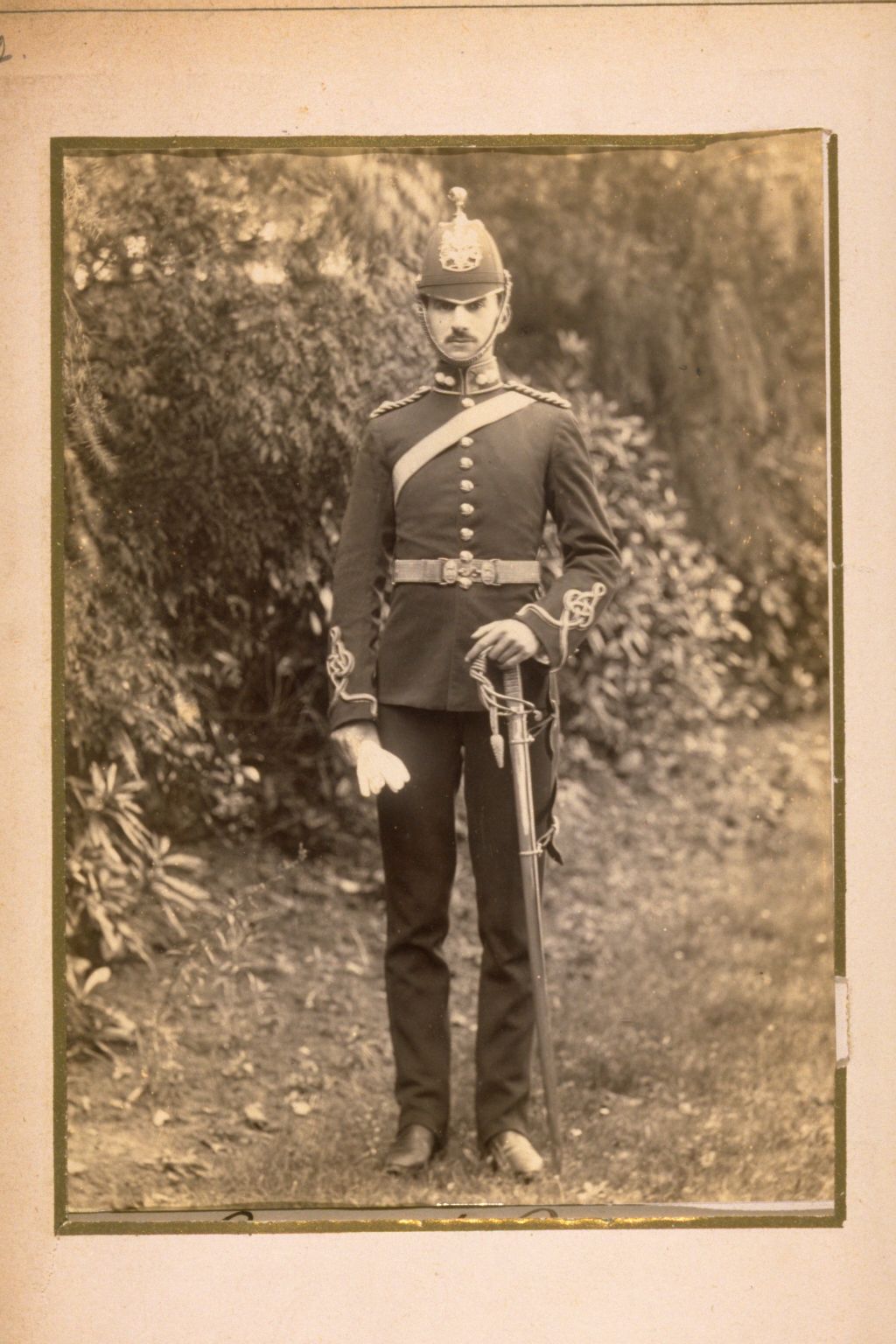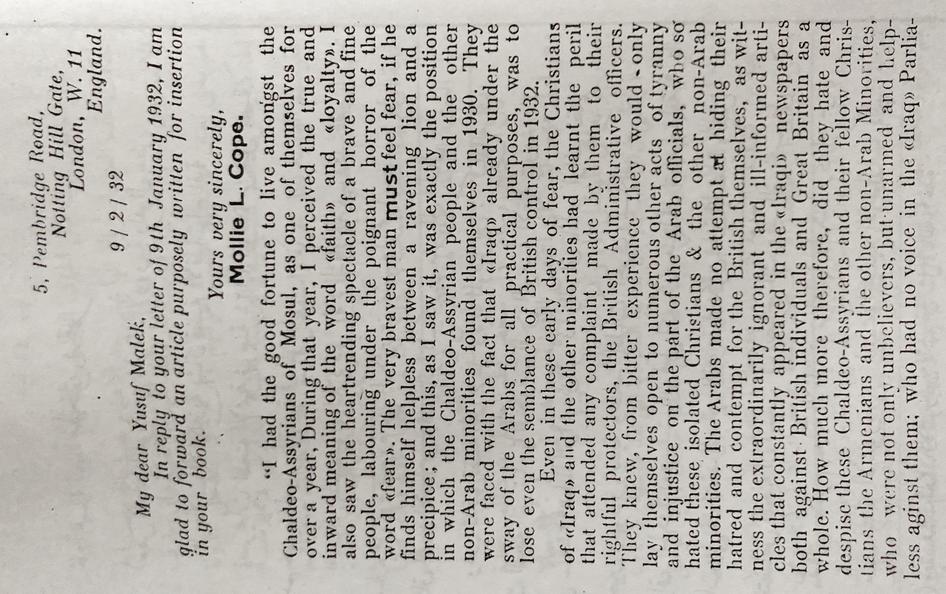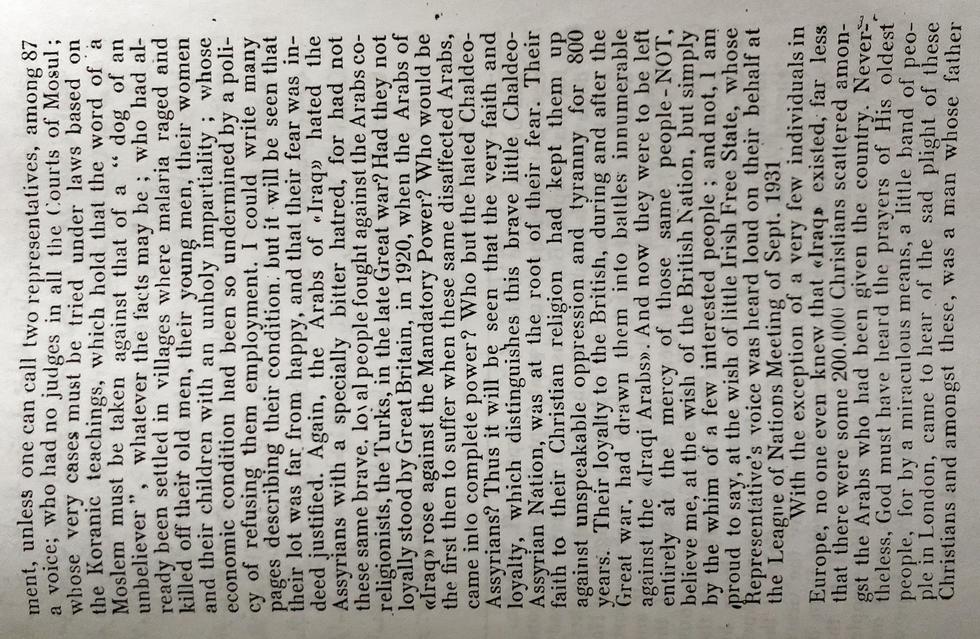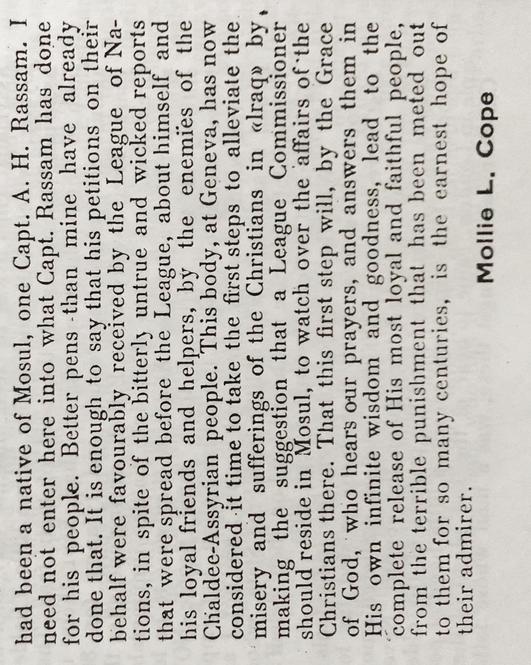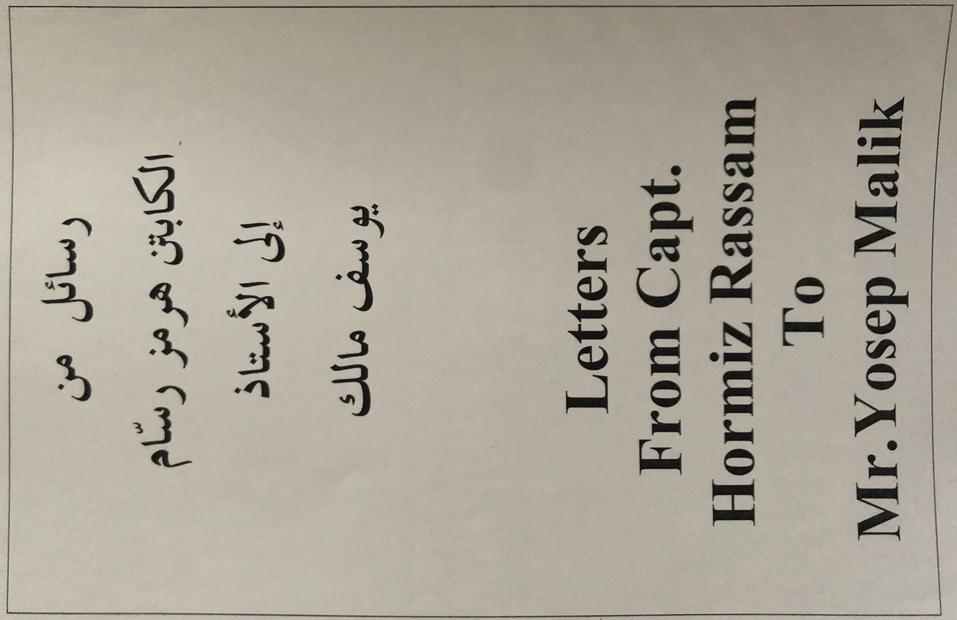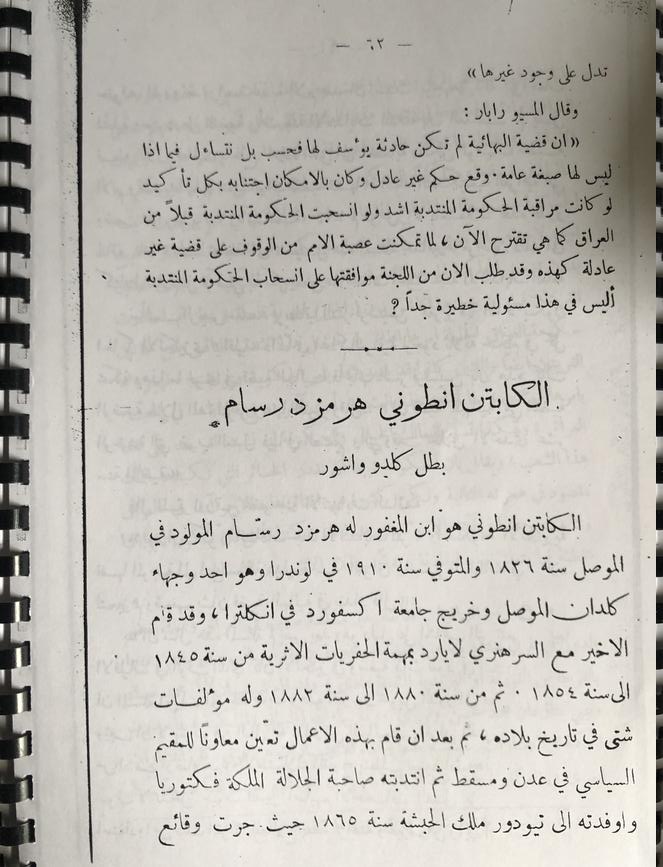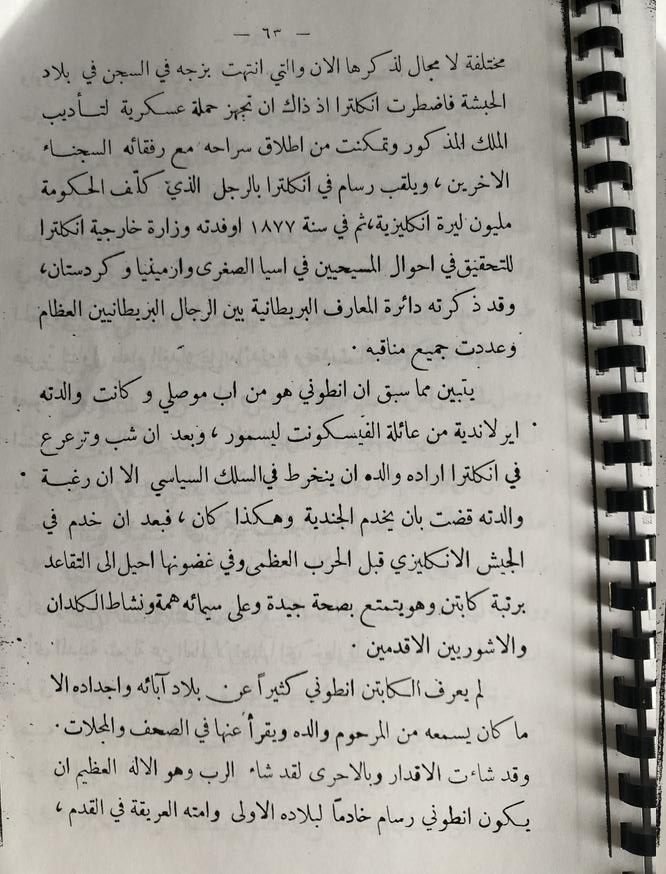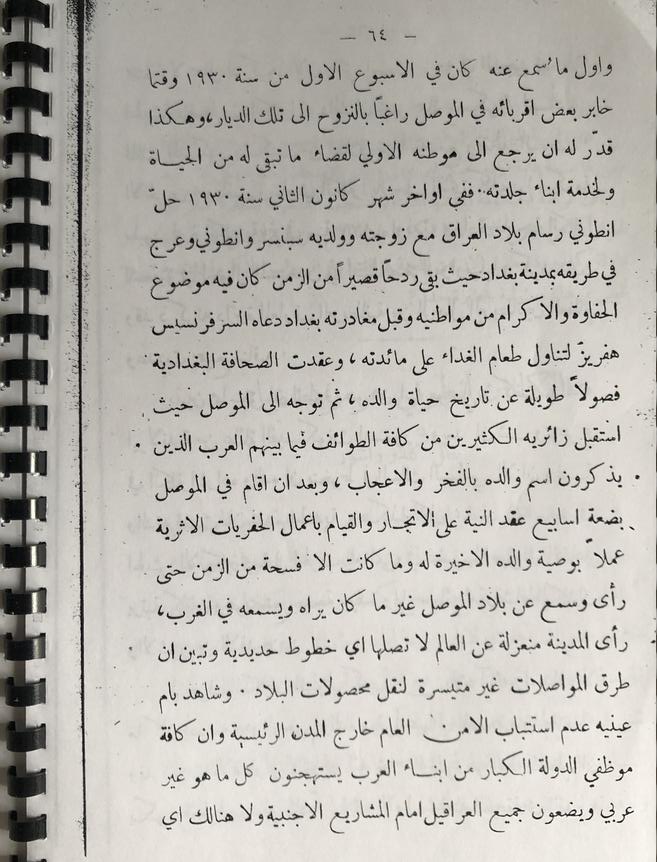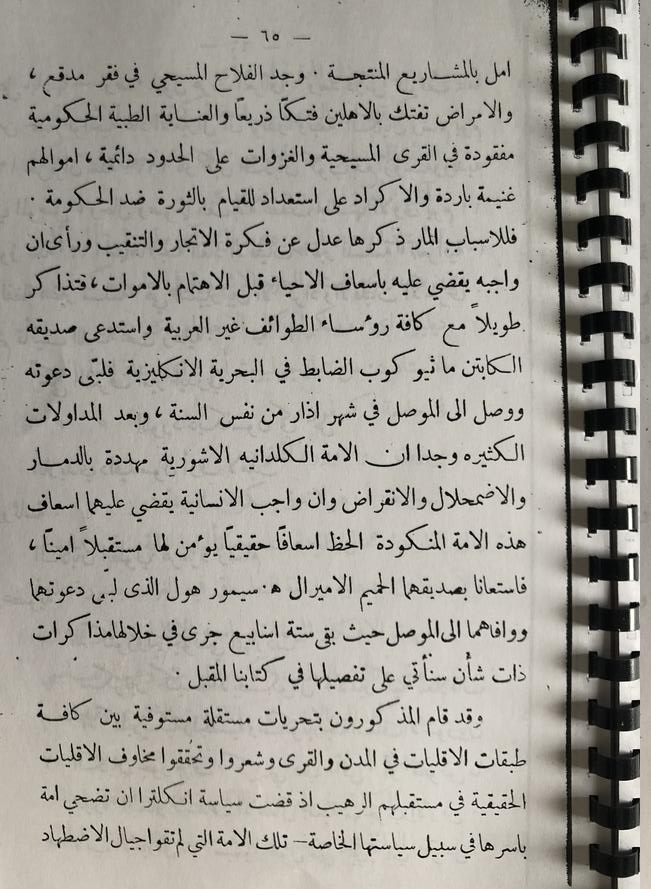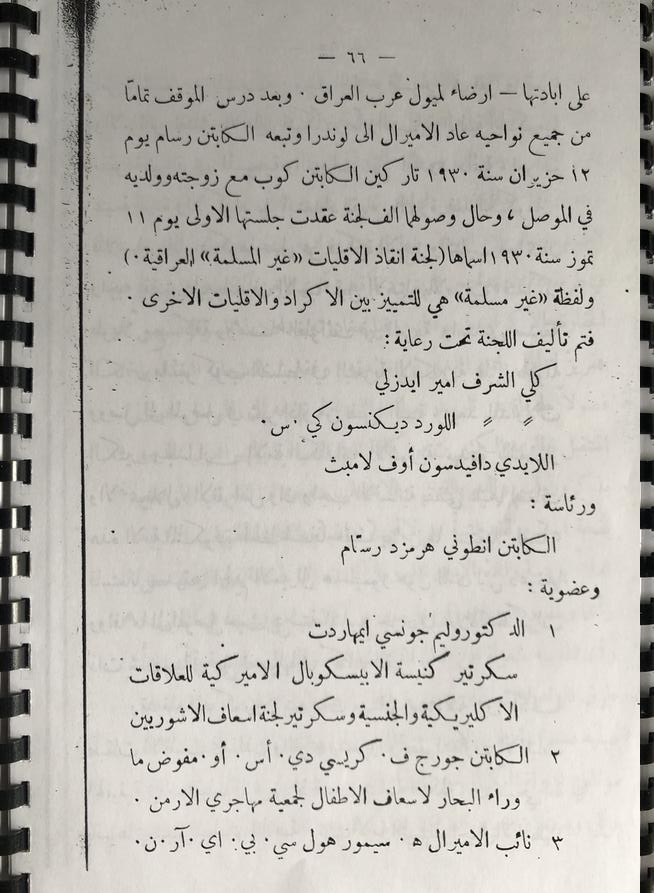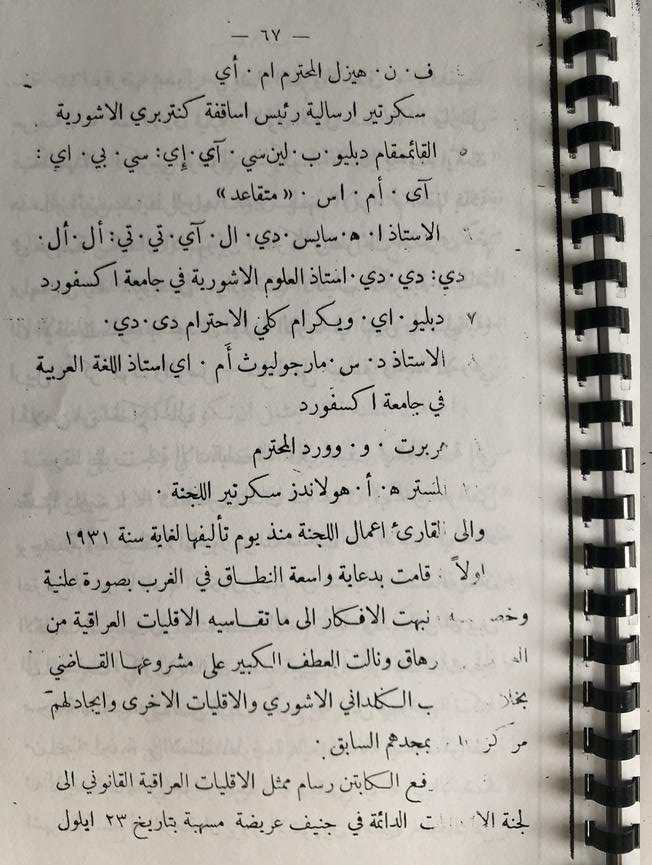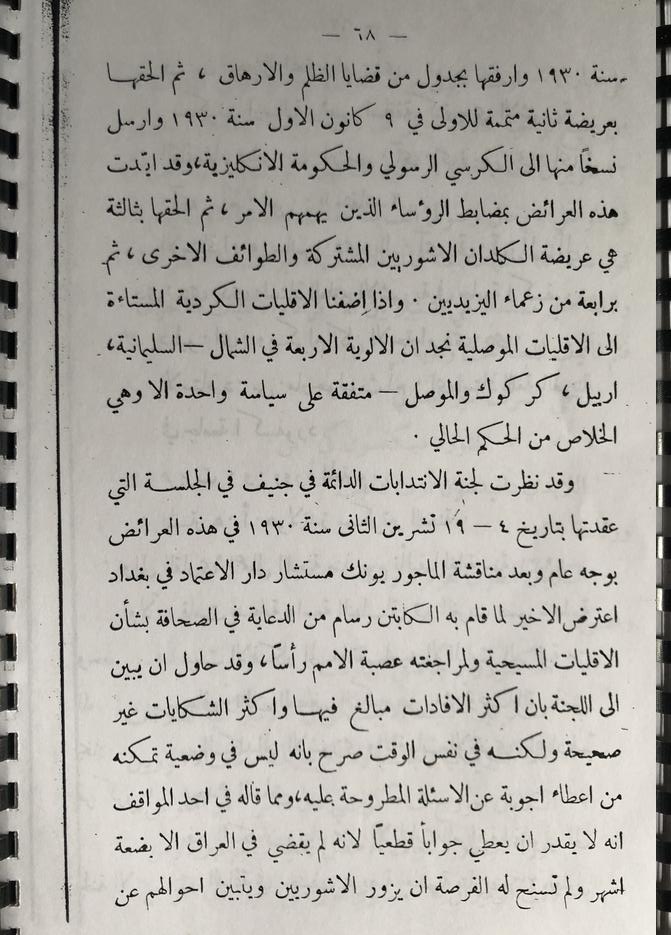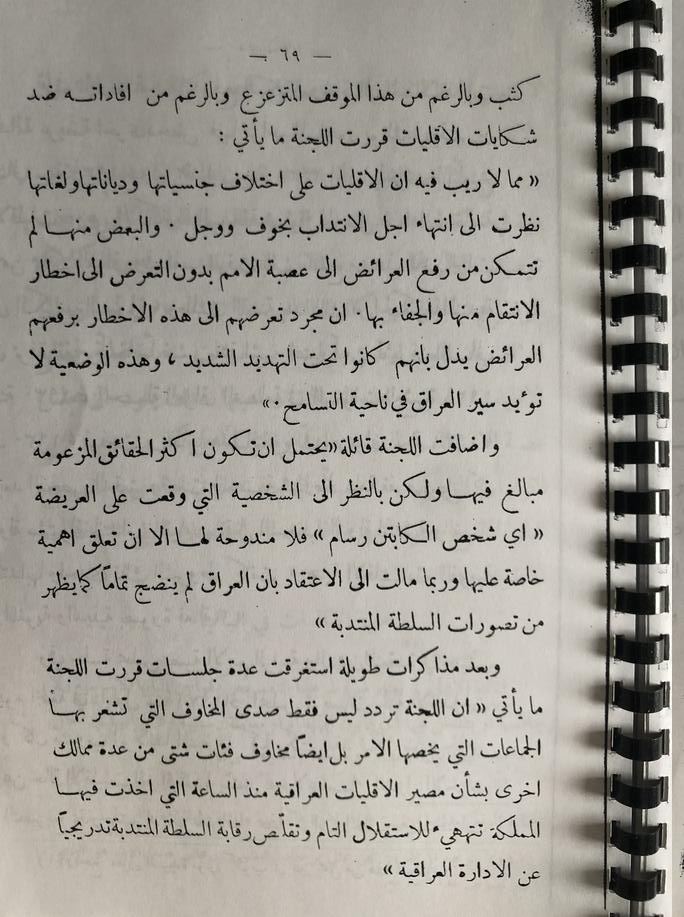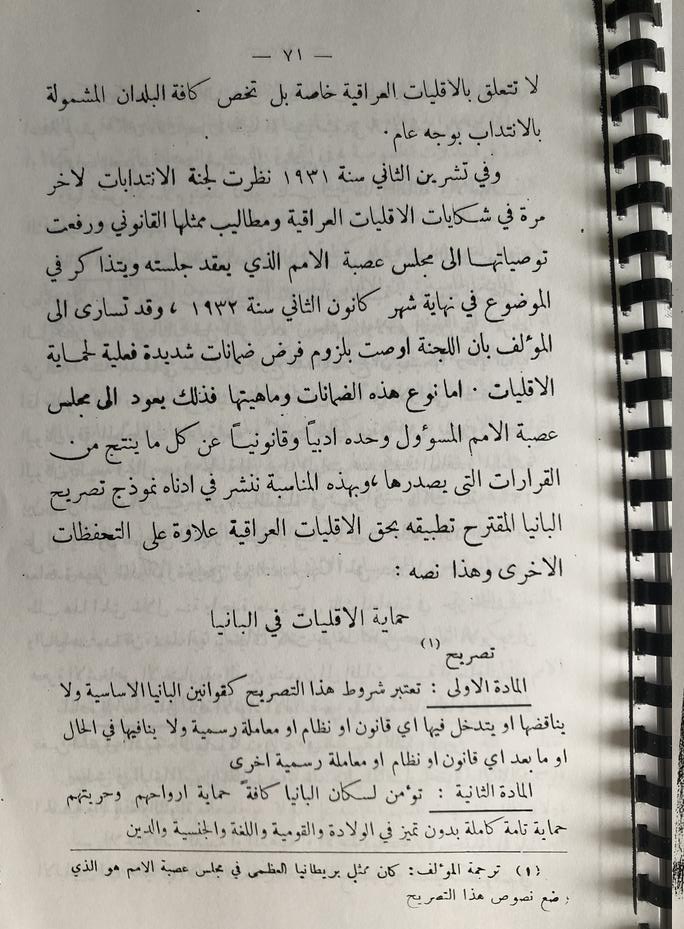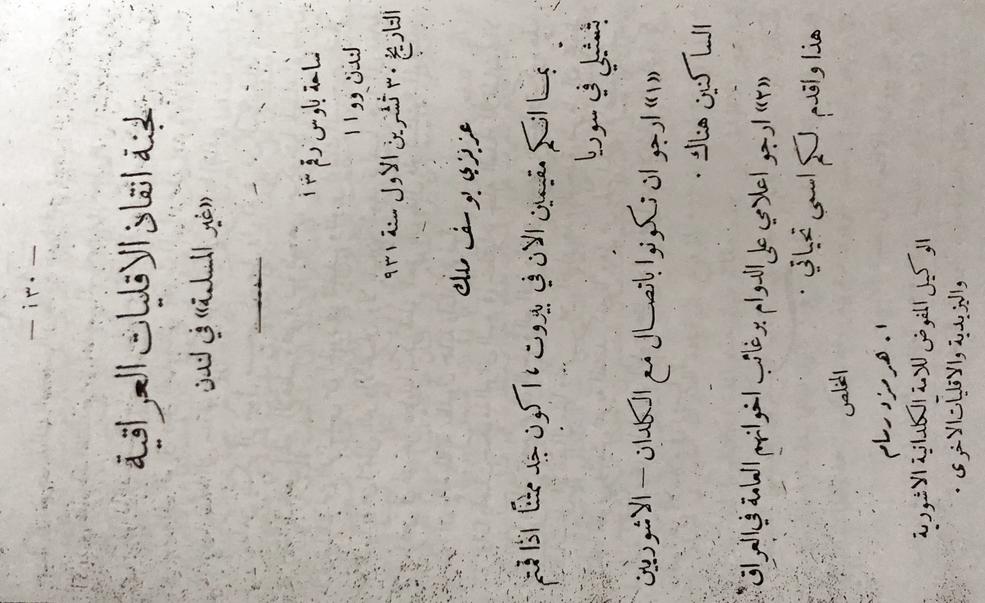Anthony Hormuzh Rassam (1883-?)Posted: Saturday, March 30, 2024 at 07:17 AM UT
Anthony Rassam, son of Assyrian Archaeologist Hurmiz Rassam, returned to Iraq in 1930 intending to become an archaeologist just like his father. However, he witnessed the pathetic situation of his people in Mosul. Rassam decided to do something about it. Rassam called his good friend British Royal Navy officer Matthew Cope and they realized that the Assyrians (ChaldoAssyrians) were on the verge of complete destruction and disappearance. They called their friend Admiral H. Symore Hall and together they began to gather documentation and records to help the Assyrian people. They created a committee under the name “The Committee to Rescue Iraq’s Non-Muslim Minorities” that had its first session on July 11, 1930. The Committee included the Yezidi Emire, Lord Willoughby Hyett Dickinson, Lady Davidson of Lambeth, Rev. Dr. William Chauncey Emhardt, Captain George Krissy, Admiral H. Seymour Hall, F. N. Hazel, A.H. Sayce, W.A.Wigram, and others. Rassam began contacts in Geneva regarding the situation of the Assyrians in Iraq. He presented two petitions to the League of Nations Permanent Mandate Committee in Geneva. The first on September 23, 1930 and the second on December 9, 1930. He sent copies of the petitions to the Vatican and the British Government. He then sent a third petition on behalf of the Assyrian people and a fourth from the Yezidis. On Nov 4-19, 1030, the League of Nations Permanent Mandate Committee began to deliberate the issues presented by Rassam (since the league had received the first petition of September already). During the discussions, Maj Sir Hubert Winthrop Young, Counselor to High Commissioner for Iraq, criticized Rassam for the way he handled the situation by contacting the League directly and how he spread the news about the Christian minorities in the press. Young claimed that Rassam’s claims were exaggerated and most complaints were false. Young also stated that he cannot answer all the questions since he has been in his position for a short period of time and that he had not gotten the opportunity to meet with the Assyrians and check on their situation. The Commission issued a statement in which it declared that it was obvious that the various Iraqi ethnic, linguistic and religious minorities anticipate with fear the end of the mandate. It stated that many Iraqi groups have been unable to present their case to the commission due to fear of retaliation or estrangement from the locals and this clearly reflected that they were under threat if they submitted their petitions and that such feelings reflect Iraq’s image of intolerance and that it was obvious that the Iraqis were not fully mature to run Iraq. The Commission stated that the minorities have reflected a lot of fear regarding their future with the premature end of the British mandate. On May 5, 1931, Rassam presented another petition to the Permanent Mandate Committee in Geneva in which he challenged the earlier claims of Major Young. Rassam presented one final petition in which he demanded to grant the minorities a special status in Mosul Province, which was to be within the Iraq Kingdom. The Committee recommended that all the mandated countries must secure and guarantee the protection of their religious, linguistic and ethnic minorities effectively. In November 1931, the Mandate Commission presented its recommendations, including secure the protection of the religious, linguistic and ethnic minorities effectively, to the upcoming session of the League of Nations set for the end of January 1932. Of course, Great Britain did all it could to end its mandate as soon as possible and facilitated that Iraq joins the League of Nations with no real measures to protect the non-Muslims in Iraq. Of course, months later, the Iraqi army, under Kurdish General Bekir Sidqi, committed the massacre of the Assyrians in August 1933 where up to 6000 Assyrian women, children and old men were brutally butchered. 19320109 - Mollie L. Cope to Yusuf MalekAnthony Hormuzh Rassam to Yusuf Malek |
